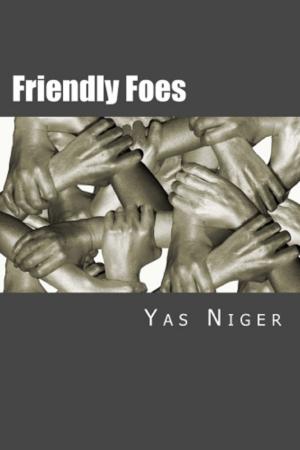Fever: The Origins of Fever (Book I)
Nonfiction, History, Africa, Fiction & Literature, Cultural Heritage| Author: | Yas Niger | ISBN: | 9781310790102 |
| Publisher: | Yas Niger | Publication: | January 14, 2014 |
| Imprint: | Smashwords Edition | Language: | English |
| Author: | Yas Niger |
| ISBN: | 9781310790102 |
| Publisher: | Yas Niger |
| Publication: | January 14, 2014 |
| Imprint: | Smashwords Edition |
| Language: | English |
In this tale everything is like everything, just as everybody likens everyone else, in a mythical sense. Everything makes up everyone and everyone is made of everything, in one blur oddity of an ironic distinctively same clarity of nature. It tells of the huge promise a blessed land points to, it tells of the many bodies buried and alive, that had and are, waited and waiting, for the satisfaction they ever sought, but never got and most likely will never get, as one entity.
The story is about a family that expressively made up a nation that approved and doled out its version of justice to all its number, but appeases none of them really. It fostered its own colossal failure in combined efforts. It made that of its constituent membership insignificant and trivial in an unimportant way. This is the historical tale of the Nigerian nationhood.
There is the honest triumph of labour, the hugely varied effect of wit against diverse hardship, and the seeming effectiveness of corruption and varied segregation where all other approaches have failed. But the lingering damage these leaves in their wake is too tasteless to be edible and yet must be wholly eaten. There is the highly proclaimed effect of diverse personalities on their orientations, and these aren’t disguised in the blatant tribalism, regionalism and ethnicity that surround it all. Everything merges into vastly imitated robustly parochial ways, too alike to be sincerely different, revealing a rich nation with a fever it resembles.
The origin of Fever is in the birth of the idea of a modern nationhood, weaned off the diverse people of the larger Niger river area of west Africa by the British colonist. They were compelled into accepting the conditions they were merged with, in the enabling circumstances that led them at the time. The choice wasn’t theirs to make, though they have since chosen to be identified by it.
In this tale everything is like everything, just as everybody likens everyone else, in a mythical sense. Everything makes up everyone and everyone is made of everything, in one blur oddity of an ironic distinctively same clarity of nature. It tells of the huge promise a blessed land points to, it tells of the many bodies buried and alive, that had and are, waited and waiting, for the satisfaction they ever sought, but never got and most likely will never get, as one entity.
The story is about a family that expressively made up a nation that approved and doled out its version of justice to all its number, but appeases none of them really. It fostered its own colossal failure in combined efforts. It made that of its constituent membership insignificant and trivial in an unimportant way. This is the historical tale of the Nigerian nationhood.
There is the honest triumph of labour, the hugely varied effect of wit against diverse hardship, and the seeming effectiveness of corruption and varied segregation where all other approaches have failed. But the lingering damage these leaves in their wake is too tasteless to be edible and yet must be wholly eaten. There is the highly proclaimed effect of diverse personalities on their orientations, and these aren’t disguised in the blatant tribalism, regionalism and ethnicity that surround it all. Everything merges into vastly imitated robustly parochial ways, too alike to be sincerely different, revealing a rich nation with a fever it resembles.
The origin of Fever is in the birth of the idea of a modern nationhood, weaned off the diverse people of the larger Niger river area of west Africa by the British colonist. They were compelled into accepting the conditions they were merged with, in the enabling circumstances that led them at the time. The choice wasn’t theirs to make, though they have since chosen to be identified by it.















